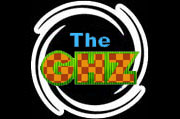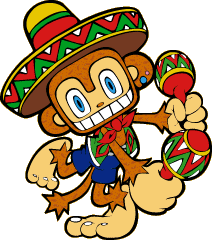
-- Site Features --




Truly, it was an awkward day in Segaland. It had only recently been announced that Yu Suzuki, Sega's father of the arcade, was working on his first original console title (which happened to be the orgasmically wonderful Shenmue, but that's another story), and all of a sudden our man Yuji and the Sonic Team kids take their first stab at a coin-op. Only, and I mean only Sonic Team could make a game as insanely fun as Samba de Amigo using the world's least likely musical instrument. Er... well, the second or third least likely instrument, anyway. Then again, anyone can pick up and play maracas, and Samba is unquestionably a pick-up-and-play game. Okay, but who's got the guts to groove on to the likes of "Livin' La Vida Loca" and "Macarena" in public? This was a frequent concern of the Team's throughout the game's development. They joked that people would only play the game drunk. Fortunately, there are a good many of us capable of achieving a drunken state without the actual use of alcohol. We refer to this condition as "shamelessness", but it achieves most of the same effects: wild fun without remorse. Uh... what I'm getting at is that the game struck gold in Japanese arcades, and a Dreamcast version soon followed. Unfortunately, no versions of Samba were ever released in arcades outside Japan, although the Dreamcast version of the original was distributed worldwide. Sadly, however, the story doesn't have a happy ending: the home versions performed rather poorly, making Samba -- like NiGHTS -- a one-hit wonder. 








This page has been accessed 04612 times since 06/19/02. Compiled and written by Jared "Green Gibbon!" Matte. Hosting provided by Emulation Zone and Emulation World. |













